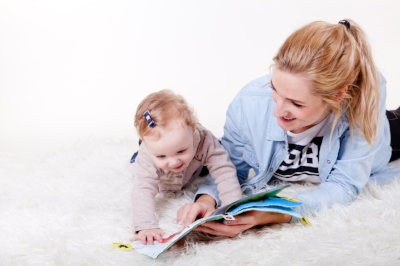
I have a confession to make. Not a gut-wrenching-spill-your-heart-out type of confession, but an important one nonetheless. A confession that I hope not to need to make again. (And if I do—please G-d, send me another reminder.)
Back to the confession. Besides for being a mother of four adorable boys, and holding a day job, I’ve got these hobbies. One of them is to write children’s books, and I often turn my own life situations into a rhyming story.
Along with being an author, comes book readings. Lots of them. In libraries, classrooms, and kindergartens. Some are local, for some I travel. I even did one in Switzerland. And for every book reading, I put myself into it fully. I’m animated, present, looking every child in the eye and reading like I have no other passion in the world. I engage the children, asking questions and listening with interest to their answers. It invigorates me.
Last Thursday, I did a book reading for a prestigious Hebrew school class in midtown-Manhattan. For thirty minutes, I was completely present with these four little five year olds, reading and acting and doing my thing. I made sure to get some great shots, because—social media.
And later that evening, as I chose a filter and sent the pics off to Instagram and Facebook, I felt sick to my stomach. You know the cliché, “The shoemaker’s kids go barefoot”? Yeah, I also hate clichés. But sometimes, they’re right.
It’s not like I never read books to my kids. But when I looked at those snapshots of how I read to those four kids, I knew I had some work to do. Those four kids had my undivided attention. Those kids didn’t have to compete with my phone, a pot, or another interesting book I picked up. For those four children, I wasn’t doing a mechanical reading, even though it was the millionth time I was reading that particular book.
Those kiddos didn’t have to be afraid that I would never finish reading a book—because clearly, I would. And those four children staring back at me from my little screen were sending me a message that I hope to engrave in my heart—that my four children deserve nothing less.
If I direct a camp for hundreds of kids in the summer, my own kids deserve “Camp Blau”— where I come prepared with trips and enthusiasm and stories to share.
If I run painting parties with kids and adults to make Yomim Tovim more exciting, my little ones deserve to feel the hands-on joy as each Yom Tov rolls around.
Rabbi Shalom DovBer Schneersohn, the fifth Chabad Rebbe, used to say that the minimal requirement for parents to consciously think about the education of their children is half an hour a day.
I used to wonder what you can think about for half an hour. But the truth is that parenting doesn’t happen on autopilot, and just like everything else in life takes effort, creativity, and active brainstorming, so does parenting.
How will I approach a particular child’s challenges? Do I need to research or ask for some advice? How will I bring home a particular message, or help a child navigate a social barrier? In what way can I be a guide for my child, on an emotional, mental, and spiritual level?
While I don’t have all the answers, the key is in asking the questions. I need to make sure that my children are not an afterthought, or extra credit, fitting into my calendar after everything else is already penciled in.
When I am planning my week, or month, or year, it’s gotta be built on the cornerstone of conscious time for my children—thirty minutes a day and then some.
So, I won’t spell out the details of my confession, but suffice it to say that I “scheduled” a book reading this past Shabbos—for my own children on my own couch—reading to them like nothing else mattered.